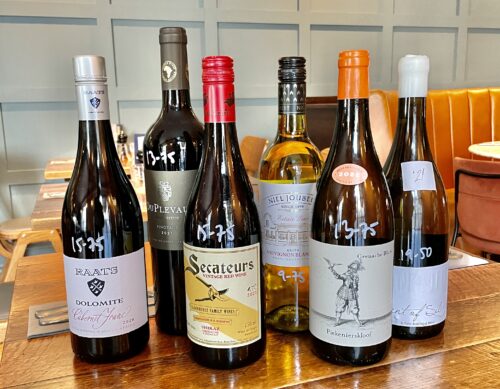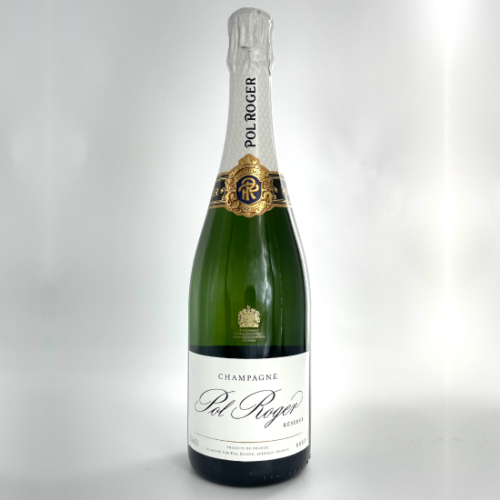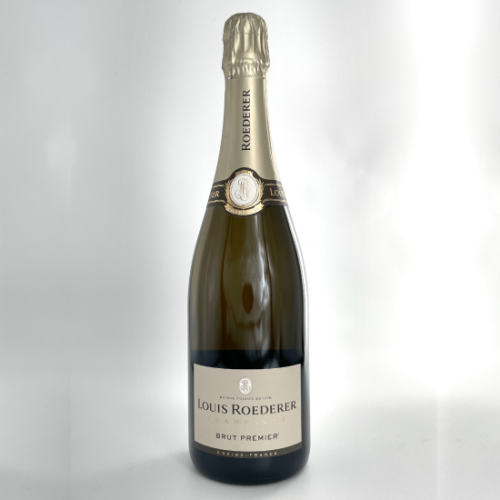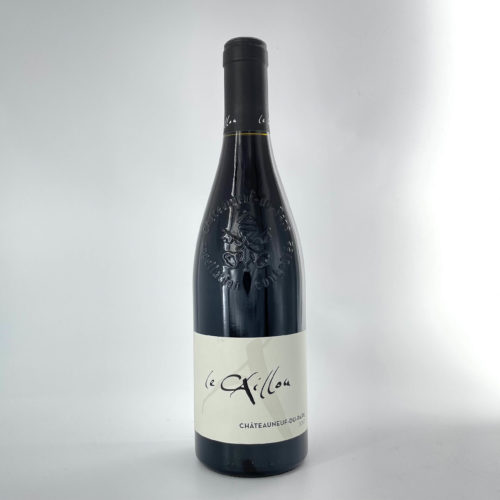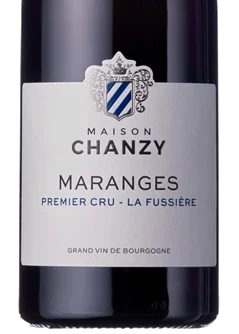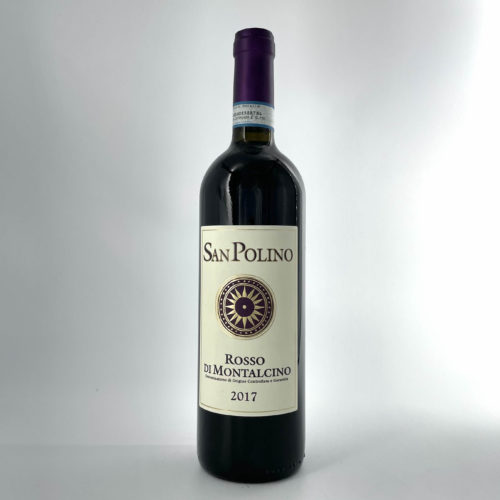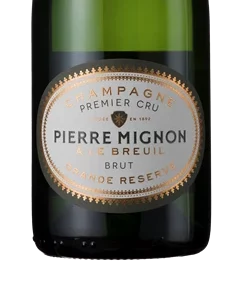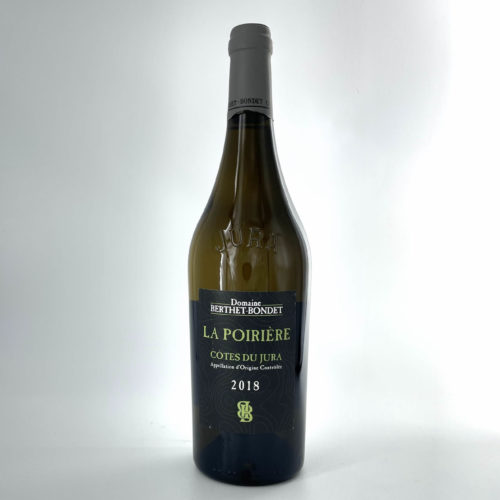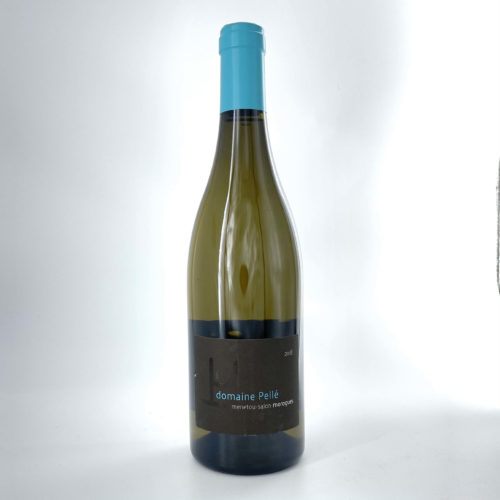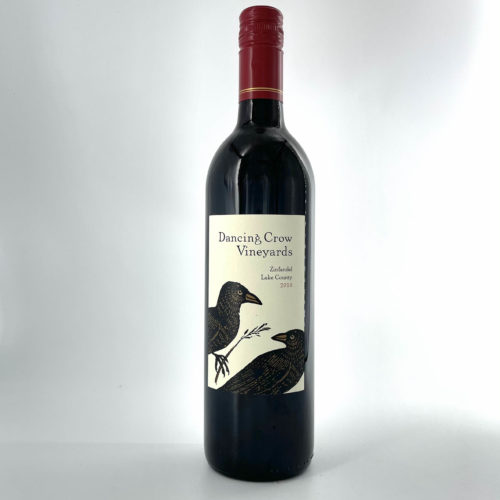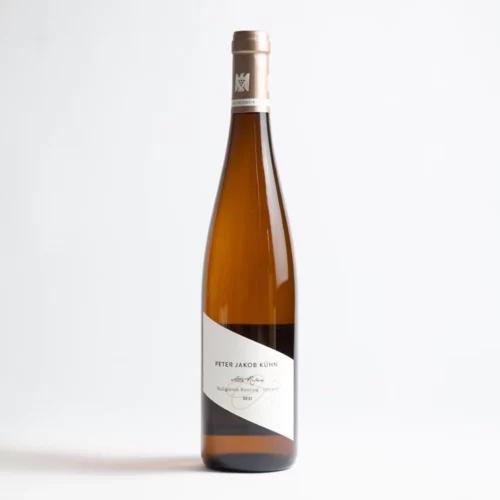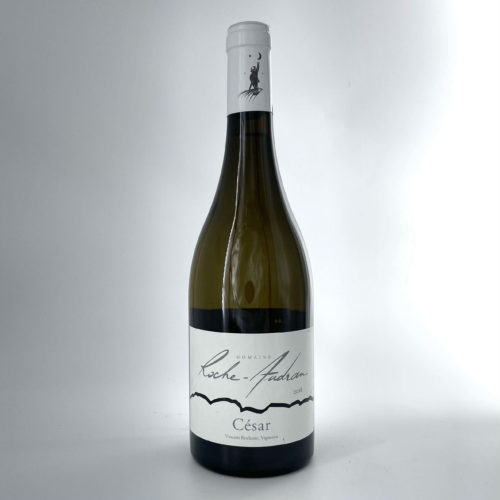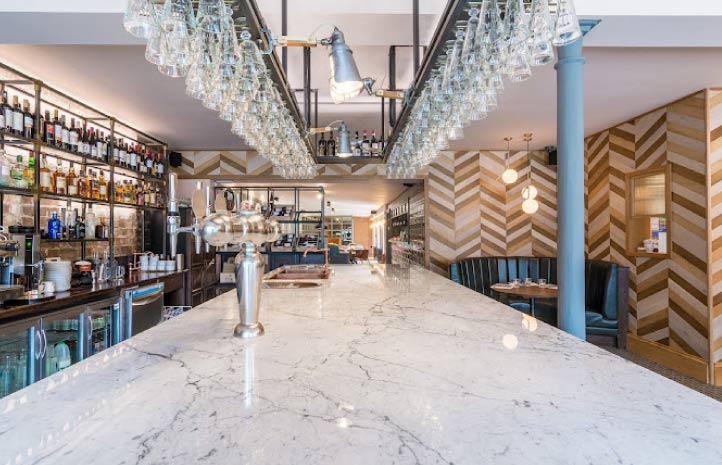South African Mixed Case
A mixed case of 6 South African wines – 3 reds and 3 white
- Sauvignon Blanc ‘Enita’, Niel Joubert, Paarl
- Grenache Blanc, Piekenierskloof, Swartland
- Chenin Blanc ‘Moment of Silence’, Blankbottle, Wellington
- Pinotage, Du Plevaux, Stellenbosch
- Red Secateurs, Badenhorst, Swartland
- Cabernet Franc, Raats, Stellenbosch
Pol Roger Brut Reserve Champagne, NV
Pol Roger, a Champenois from Aÿ, founded his champagne house in Epernay in 1849. Over the next 50 years, until his death in 1899, he built his business into one of the most respected in Champagne and, in particular, forged strong trade links with Britain. The founder was succeeded by his sons, Maurice and Georges, who changed their names to Pol-Roger by deed poll and, thereafter, by a further three generations of his direct descendants. To this day the company remains small, family-owned, fiercely independent and unrivalled in its reputation for quality.
Louis Roedereer Brut Premier Champagne, NV
From the maker of Cristal, sstablished in 1776, Louis Roederer is one of the few, great Champagne houses which remains family owned.
Chateauneuf-du-Pape ‘Les Safres’ Caillou, S Rhone, France
The Clos du Caillou was founded in 1895 when Elie Dussaud settled there and created an old cellar. It started as a hunting retreat and it has a remarkable history which explains its exclusion from the Châteauneuf-du-Pape appellation upon its creation in the 1930’s. When government experts arrived at the Clos in 1936 to survey the land for its inclusion in the new appellation, they were met with armed resistance to prevent them entering the property as the secretive owners didn’t want their estate to be analysed. This is the reason for the seemingly inexplicable blank spot in the Châteauneuf-du-Pape appellation map. As a result, the Clos du Caillou is home to some of the most spectacular terroir classified as simply Côtes-du-Rhône. The estate was purchased in the mid-1950s by the Pouzin family who decided to plant vines on the land that had traditionally been designated for hunting. They also acquired a 9 hectare plot within the Châteauneuf-du-Pape appellation itself. In 1995, Sylvie Pouzin took on the estate from her father and began the process of converting the vineyard to biodynamic practices. They gained their official organic certification in 2010 and since then have gone on to grow their reputation for the production of outstandingly well-balanced wines with their signature, soft velvety tannins.
Chanzy, Maranges, 1er Cru La Fussier, Cotes de Beaune, Burgundy, France
Maison Chanzy is a highly respected Burgundian producer, their wines are a classical demonstration of premium vineyard sites in Côte Chalonnaise, Côte de Beaune and Côte de Nuits.
Their range has been carefully engineered by winemaker Max Blondelle, whose primary task is to create wines that eloquently communicate their respective terroir, whilst remaining hands-off in his approach. As such, Chanzy are one of the few Burgundy producers to achieve Haute Valeur Environnementale level 3; the most highly regarded certification for agriculture in France.
Rosso di Montalcino, San Polino, Tuscany, Italy
There is a small ‘nirvana’ northwest of Montalcino, where Luigi Fabbro and Katia Nuassbaum founded San Polino nearly 30 years ago.
Using Luigi’s scientific experience of mapping the Amazon rainforest they decided to try their hands at “creating wines as complete reflections of the biodiversity of their terroir” Katia explains. This tiny estate of only 4 hectares now produces luscious and balanced wines farmed bio-dynamically by this energetic couple who, it is clear, pour all their heart and energies into these sublime wines. Praised by critics and peers they have been described as having “an incredible clarity and pureness of fruit that is unequalled in the region”.
Pierre Mignon, Grand Reserve 1er Cru Champagne, France
Champagne Pierre Mignon is a family owned house located in Le Breuil in the Marne Valley.
Over several generations, the family estate has grown significantly with vineyards in the Marne Valley, Côte des Blancs and Épernay. Mignon produces stylish Champagnes with a fresh, vibrant character, all of the wines are made within their own cellars where attention to detail and quality is paramount. Their fresh and vibrant character is balanced with a soft and creamy mousse to produce Champagne that is perfect for any occasion.
Chardonnay La Poiriere, Domaine Berthet Bondet, Cotes de Jura, France
Jean Berthet-Bondet has been working his land since 1984.
With a humble 15 hectares of 30 year old vines, this estate may well be small but it is steeped in history and heritage. Half of Jean’s land is in the Château Chalon appellation which is home to the Savagnin grape, renowned for making the revered Vin Jaune. A unique wine that has seen a resurgence of popularity in recent years, but has always been appreciated by the knowledgeable few.
Mentou Salon Morogues, Domaine Pelle, Loire Valley, France
For a long time, Menetou Salon was viewed as the poor relation of nearby Sancerre. Producers such as Domaine Pellé have ensured that is no longer the case. Anne and Paul-Henry Pellé currently preside over the family estate, the 4th generation of the Pellé family to tend vines here. They farm in a truly sustainable manner and aim to communicate the unique expression of the Menetou Salon terroirs in each bottling. Their ‘Morogues white’ is a blend of 7 different parcels from the highest slopes of the appellation. This location ensures the vines, which are rooted in Kimmeridgian marl soils, are exposed to cool temperatures coupled with long sunshine hours
Zinfandel, Dancing Crow Vineyards, Lake County, California, USA
Example of ‘cool-climate’ California – British winemaker – excellent value for money
Owned by Londoner Tony Cartlidge and his wife Sarah, Dancing Crow is an exciting addition to our growing American portfolio. Tony has worked in the Napa Valley since the late 1970s and his latest project sees a return to a more focussed production than his previous projects, as he and his team fashion only a handful of key cuvées.
Hallgarten Riesling Trocken, Peter Jacob Kuhn, Rheingau, Germany
It was no surprise Peter Jakob Kuhn had been voted German winemaker of the year for 2016 – his wines are some of the best examples of German produce we have tasted. The Kühn estate was founded in 1786 by Jacobus Kühn and has remained under the watchful eye of his family ever since. Now, along with his wife Angela, and their son Peter Bernhard (who, during his training completed a stage with our friends at Domaine Zind-Humbrecht), cultivates the family land biodynamically, producing a range of Rieslings which showcase the Rheingau terroir. A fervent believer in the ecological benefits of biodynamic farming, Peter is at present, the only producer to follow biodynamic principles in the Rheingau. His wines are made in a fearless manner, with as much as possible left to nature’s own course. His experimental cuvées include wines which have undergone extra-long lees ageing or been fermented and aged in amphora vessels. Peter is a producer we are delighted to introduce to you all and we firmly believe that his wines will become iconic in the very near future.
Cotes du Rhone Cuvee Cesar, Domaine Roche-Audran, Southern Rhone, France
Vincent Rochette comes from a long line of grape growers rather than winemakers. In 1998, he bucked that trend by investing in a cellar and the necessary equipment to allow him to vinify his own grapes, which for five generations had been sold to other winemakers in the area. Vincent is an ardent believer in the benefits of biodynamics, fully converting his estate to follow that philosophy in 2006. He uses only natural products in the vineyard and carries out all his work in keeping with the cosmic cycles of the earth, not only among the vines but also in the cellar

